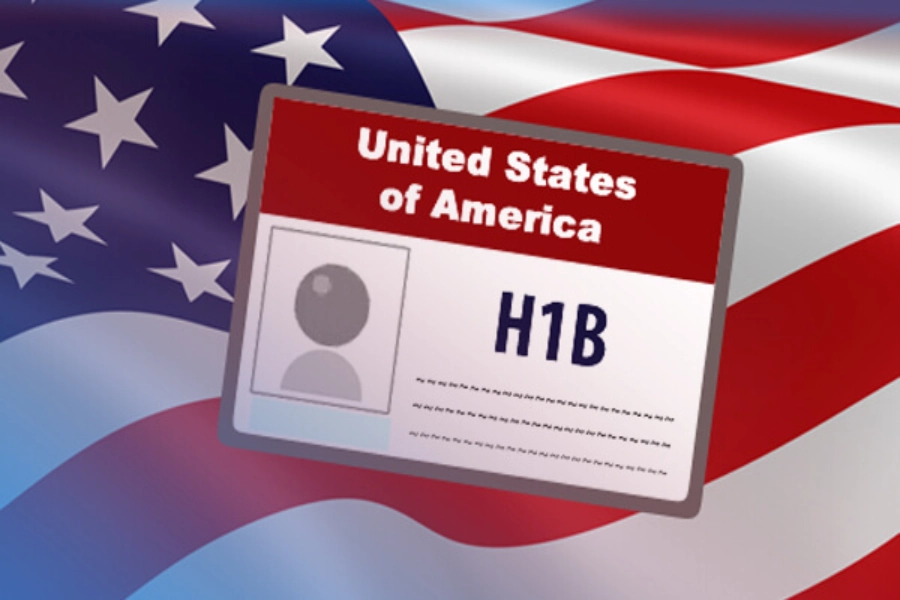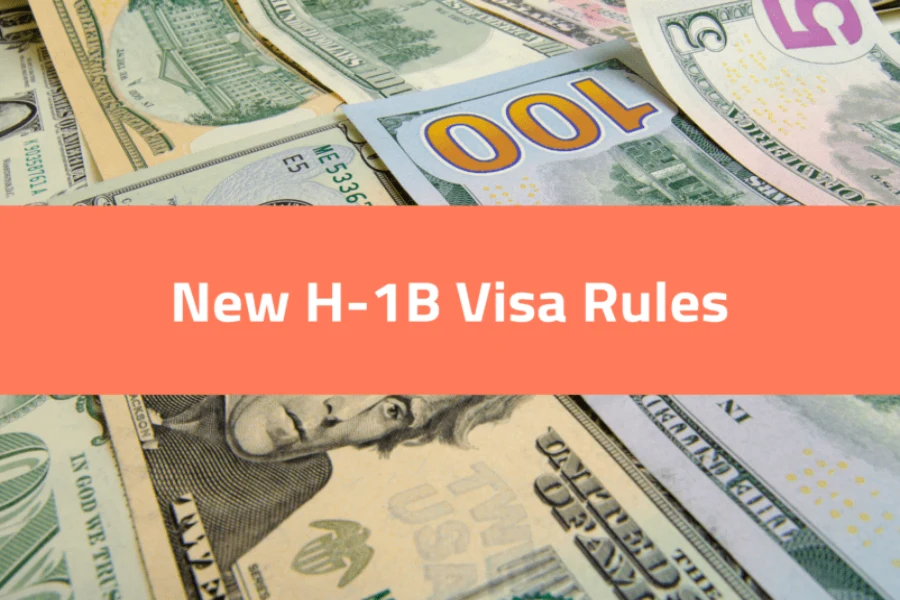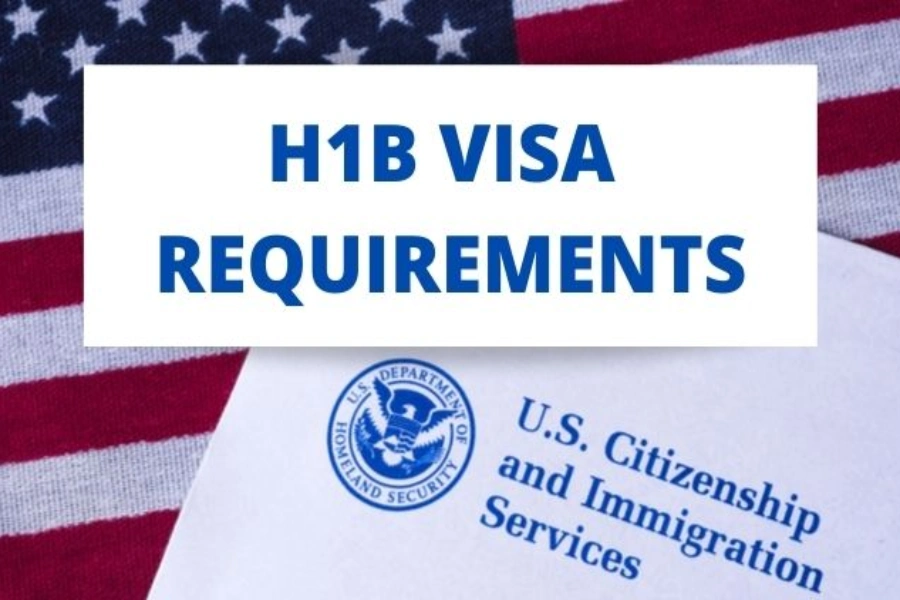H1B visas have long been the gateway for skilled professionals to work in the United States, particularly in technology, engineering, and healthcare sectors. These visas allow U.S. employers to hire foreign nationals in specialty occupations requiring a high level of expertise. As of 2025, significant legal updates and procedural changes are reshaping the H1B visas landscape, impacting both applicants and employers.

Key Legal Changes in H1B Visas for 2025
One of the most notable developments for H1B visas in 2025 is the transition from a random lottery system to a wage-based selection process. This change aims to prioritize applicants who command higher salaries and possess advanced qualifications. The U.S. government has confirmed the legal review of this update, with approval from the Office of Information and Regulatory Affairs (OIRA) under the Executive Office of the President.
This new system is designed to attract top-tier global talent by legally prioritizing those whose positions pay higher wages. This shift is expected to have far-reaching consequences, altering traditional application strategies and demanding a new level of diligence from both sponsors and candidates.
- Wage-Based Selection Explained: Under the new framework, petitions are ranked based on the offered wage level. The Department of Labor (DOL) classifies wages into four tiers, with Level 4 representing the highest skill and salary level. Petitions with a Level 4 wage will receive the highest priority, followed by Level 3, and so on. This approach is legally grounded in federal regulations, ensuring that highly skilled professionals are prioritized while maintaining compliance with labor market protections for U.S. workers.
- Revised Definition of Specialty Occupation: USCIS has also introduced a more flexible interpretation of what constitutes a “specialty occupation.” While a bachelor’s degree is still a baseline requirement, USCIS now places greater emphasis on a combination of education and experience. This change aims to broaden the eligibility pool for individuals who possess significant professional expertise but may not have a degree in a highly specific field.
Legal Implications for Employers
The H1B visa process has become more complex for employers. Companies must now align their sponsorship strategies with the new legal framework to improve their chances of success.
- Incentivizing Competitive Salaries: The wage-based system incentivizes competitive salary offers. Employers are now under pressure to offer salaries that meet or exceed Level 3 or Level 4 prevailing wages to maximize their chances of their petitions being selected. This may lead to an increase in compensation for H1B roles across the board.
- Enhanced Compliance and Audits: Legal compliance remains critical. Employers must provide certified Labor Condition Applications (LCAs) confirming they will pay the prevailing wage for the position. Misrepresenting salary or employment conditions can lead to severe penalties, revocation of visa petitions, or future disqualification. The DOL and USCIS are also increasing site visits and audits to ensure compliance, particularly for companies with a high number of H1B visas beneficiaries.

Step-by-Step H1B Visa Application in 2025
Understanding the new application process is crucial for a successful outcome. The updated procedure includes several key stages:
- Labor Condition Application (LCA) Filing: Employers must first file an LCA with the DOL, specifying the job title, duties, wage rate, and work location. This must be certified before the H1B petition is filed.
- H1B Registration: Employers electronically register their candidates during the designated registration period. The registration fee has increased from $10 to $215 per applicant.
- Wage-Based Selection: USCIS will then rank and select registrations based on the offered wage levels, prioritizing the highest-paying positions.
- H1B Petition Submission: Only selected petitions are permitted to proceed. Employers must then submit Form I-129, along with supporting documents, to USCIS.
- USCIS Adjudication: Selected petitions undergo a detailed review for eligibility, employer compliance, and authenticity of the specialty occupation.
- Visa Issuance: Once approved, applicants proceed with visa stamping and entry into the U.S.
Impact of Wage-Based H1B Selection on International Professionals
The shift to wage-based selection significantly influences international professionals, especially recent graduates and entry-level specialists. Higher-paid roles will dominate the selection pool, potentially limiting opportunities for early-career talent or startups with constrained budgets.
- For Early-Career Professionals: Entry-level professionals may face a tougher landscape. To increase their chances, they should focus on acquiring advanced degrees (especially U.S. master’s degrees, which provide an advantage) and specialized skills in high-demand fields like artificial intelligence, cybersecurity, and advanced engineering.
- For Experienced Professionals: The new system is more favorable for experienced professionals with several years of experience and higher salaries. They are more likely to meet the Level 3 or Level 4 wage criteria, placing them in a stronger position for selection.
H1B Visas and Immigration Law Strategy
Applicants and employers must now integrate legal and strategic considerations into their H1B visa filings:
- Advanced Degree Benefits: Holding a U.S. master’s degree or higher provides a significant advantage, as these petitions are often processed under a separate, less competitive cap.
- Salary Negotiation: Legal adherence to prevailing wages is mandatory, but competitive offers significantly improve the ranking. Applicants should be prepared to negotiate salaries that reflect their true value and skills.
- Employer Compliance Checks: Conducting due diligence on prospective employers is crucial. Applicants should verify that the employer has a history of compliance with DOL and USCIS regulations to avoid petitions at risk of denial.
Common Legal Pitfalls to Avoid
Navigating the H1B visa process requires careful attention to detail. Common mistakes can lead to delays or denials:
- Underreporting Salary: Misrepresenting compensation can lead to visa revocation and severe penalties for the employer.
- Inaccurate Job Classification: Misclassifying a role to meet H1B criteria can trigger audits and legal consequences.
- Ignoring LCA Posting Requirements: Employers are legally required to post LCA notices at worksite locations. Failure to do so can invalidate the entire petition.
Conclusion
The H1B visa landscape is undergoing its most significant reform in years, with wage-based selection at the forefront. Understanding the legal framework, wage compliance requirements, and strategic application practices is crucial for both applicants and employers. By carefully aligning petitions with legal mandates and competitive standards, professionals can maximize their chances of successfully obtaining an H1B visa in 2025 and beyond.
FAQ
Q1: What is the H1B visa 2025 update? A1: In 2025, the H1B visa program transitioned to a wage-based selection system, replacing the random lottery. Applicants with higher salaries or advanced U.S. degrees get priority.
Q2: How does H1B wage-based selection work? A2: USCIS ranks applications based on offered wages. Higher salaries, corresponding to a higher DOL wage level, increase the chance of selection.
Q3: Who is eligible for H1B visas in 2025? A3: Professionals in specialty occupations requiring a bachelor’s or higher degree are eligible. Priority is given to applicants with advanced U.S. degrees or higher-paying job offers.
Q4: Can entry-level professionals still get H1B visas? A4: While possible, their chances are lower unless they secure competitive wages or have advanced degrees. Strategic job applications are essential.
Q5: How does H1B electronic registration work? A5: Employers submit a digital registration for each candidate. USCIS then selects candidates based on the wage-based criteria before filing full petitions.
Q6: What are common legal mistakes to avoid? A6: Underreporting wages, misclassifying roles, and ignoring Labor Condition Application (LCA) posting rules can lead to petition denial or penalties.
Q7: Do H1B employers need to comply with labor laws? A7: Absolutely. Employers must pay the prevailing wage, maintain LCAs, and follow U.S. labor and employment regulations to avoid legal consequences.
Q8: How can applicants increase their chance of selection? A8: Apply to high-paying, in-demand sectors like tech and healthcare; highlight specialized skills; and consult with an immigration attorney.

